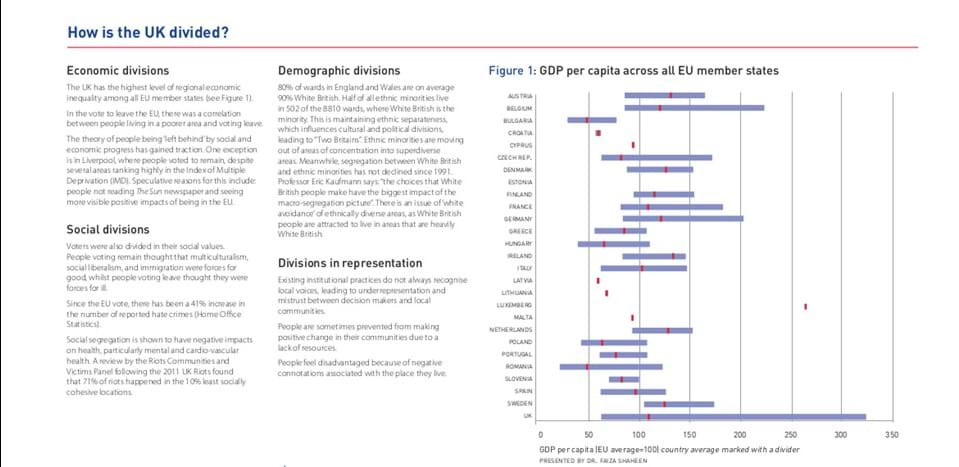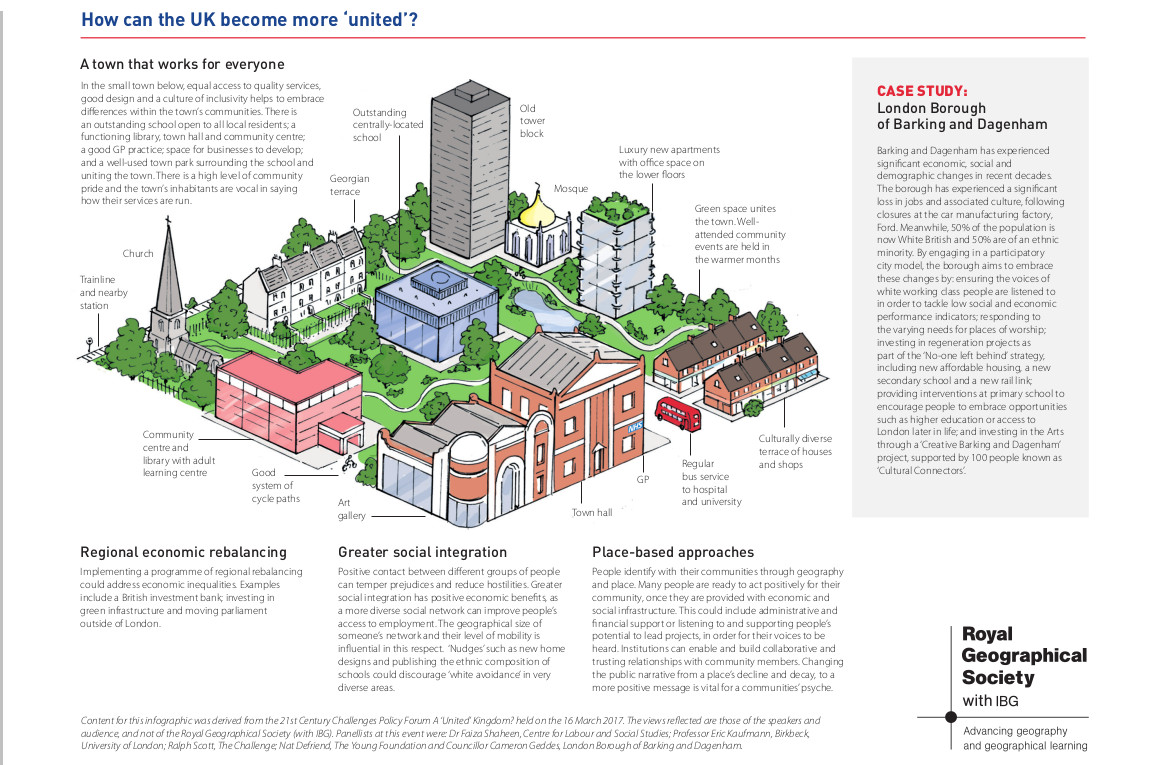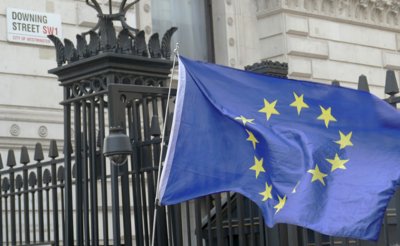What does the Brexit vote tell us about regional inequality and community integration in the United Kingdom? Do narratives around these issues really tell the whole story? And how can understanding geographies of inequality and integration give us the insights needed for better social policy?
Challenges
In June 2016, the UK voted by a narrow margin to ‘Leave’ the European Union (EU) (52 per cent to leave and 48 per cent to remain). Analysis revealed significant differences in voting behaviour between geographical areas and within different groups of society, and a major review into opportunity and integration (Casey Review, 2016) concluded that some communities in the UK had been ‘left behind’ by social and economic progress.
In the immediate aftermath of the Referendum, Professor Matthew Goodwin at the University of Kent suggested that the Referendum result could be viewed as a “window through which we can see the deeper divide that will be with us for many years to come”.
Addressing and understanding perceived divisions requires not only understanding how geographical inequalities in the UK relate to views on Brexit, but also requires understanding challenges around integration, cohesion and questions of shared values in a changing society.

Infographic by Greg Stevenson
Solution
The RGS-IBG convened a Policy Forum on social division and cohesion to identify key debates and challenges, and share expert knowledge on how to address those. The event addressed how long-standing inequalities could be addressed effectively, and asked how the country could become more united. Panellists included Dr Faiza Shaheen (CLASS), Professor Eric Kaufmann (Birkbeck), Nat Defriend (Young Foundation), Ralph Scott (the Challenge) and Councillor Cameron Geddes (London Borough of Barking and Dagenham), and chaired by Nicholas Hellen, Social Affairs Editor at the Sunday Times.
The panel discussed how to address the factors that perpetuate structural inequalities in society:
-
Faiza Shaheen addressed regional equality in the UK, and highlighted where Brexit voting did not map onto conventional-narrative patterns of income and region – for example, Blackpool and Liverpool, which had similar socioeconomic characteristics and changes in immigration, displayed different voting patterns.
-
Eric Kauffman noted the movement of different ethnic groups to different areas, the geographic concentration of non-white populations, and the increasing spatial separation between white and non-white populations.
-
Ralph Scott also discussed how the geographic size of a person’s social network was a good predictor of voting, and highlighted the importance of social interaction to cohesion, economic activity and health
-
Nat Defriend discussed approaches to addressing inequality with research and “local co-creation”, the importance of a sense of place to a person’s sense of inequality, and better recognition of local expertise and value in policy and decisionmaking.
-
Cameron Geddes talked about how discussions around nostalgia really reflect that communities are changing, and that engaging with real experiences of inequality and cultural/demographic change is essential to fully understand attitudes to Brexit and immigration and address inequality.

Infographic by Greg Stevenson
Next steps
The event sought to host debate around regional inequality in the UK and move towards a consensus on potential approaches to tackling the issue. In particular, participants developed a consensus that the geographic variation of Brexit voting, and the complex associations with various social factors, defy over-broad analyses.
The panel agreed that work to increase social mixing and integration were important to imprpoving cohesion and addressing inequality. This emphasises place-based, localised approaches to better focus efforts to dismantle structural causes of inequality. This would include deliberately directing resources, funds and expertise towards hard-to reach groups to help build aspirational, positive narratives with these communities rather than “a sense of grievance and unfairness, isolating communities from modern British society” (The Casey Review).
The participants also highlighted the need to build greater integration both spatially and socially, and the importance of understanding differing values to understanding Brexit voting patterns. Audience participants were also able to share their views and expertise.
About this event
This event took place on 16 March 2017 and was part of the Society’s 21st Century Challenges Policy Forum series, which brought together members of the geographical community, practitioners, policy-makers and other interested parties to discuss and debate, build professional networks, and encourage critical thinking and informed debate on some of the biggest issues and challenges facing the UK.
Listen to the full recording of the event
Share this resource
This is an open access article under the terms of the Creative Commons Attribution License (CC BY NC 4.0), which permits use, adaptation, distribution and reproduction in any medium or format, provided the original work is cited and it is for non-commercial purposes. Please contact us for other uses.
How to cite
Royal Geographical Society (with IBG) (2020). A 'United' Kingdom? Brexit, inequaity and integration. Available at https://rgs-rebuild.netcprev.co.uk/21CCbrexit Last accessed on: <date>
Featured image: Frederick Tubiermont/Unsplash
